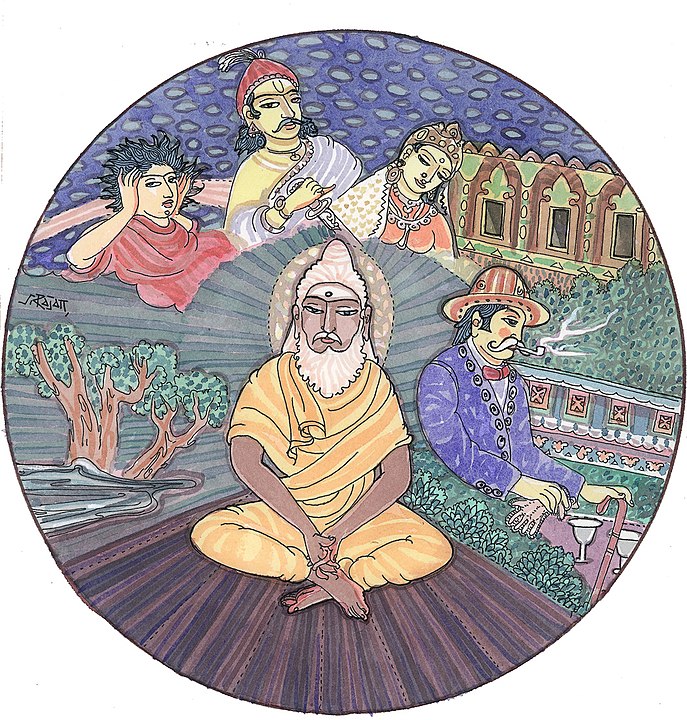
Martin Goodson
Karma - A way of looking at a tricky doctrine.
If in Buddhism there is no permanent self or soul, what is it that gets reborn?
 ©
©
Buddhism inherited the doctrine of karma from its parent religion, Hinduism.
The Law of Karma is seen as inherent in the universe, and in fact the Indian Abhidharma teacher Vasubandhu said that it is karma that creates the universe from moment to moment.
Quite simply, karma is the law of cause and effect; however, this is understood not in the scientific term but as the process that creates the worlds that sentient beings live in. Karma has to do with the creation of consciousness. The term karma (adj.), or karman (n), means intentional action. That is, an action that is prompted by desire or aversion. It does not refer to reflex actions such as blinking if an insect flies towards the eyes. According to the doctrine all karmic actions produce results (or future rebirths).
To Westerners, one way of looking upon this doctrine is as a psychological law that explains how states of consciousness arise. For example, a man happens to be on his way to work one morning; he is not happy at work and there is a nascent desire not to go. However, there is no question of him not going, but that desire niggles and makes the man feel uncomfortable. So, he pops into the local sandwich shop on the way, and gets a fried bacon sandwich that happens to be his favourite. The pleasure he experiences from satisfying this desire partially nullifies the uncomfortable effect of the not wanting to go to work. Here we have an example of how a desire motivated him to an action. As a result of that action, certain karmic seeds were created and laid down in the stream of consciousness that makes up the being of that man. Those seeds will ripen and bear fruit when surrounding conditions are conducive to their ripening. Sometime later, someone at work criticises him and he leaves the office in a huff. His footsteps take him past the sandwich shop and suddenly up pops a powerful desire for a lovely bacon sandwich! The seeds ripened and bore fruit and in he goes. Thus, more seeds are planted and he now regularly goes for a bacon sandwich whenever he feels even slightly out of sorts. It is this sort of rebirth that is talked about in Buddhism, rather than whether ‘I was a Roman legionnaire in a previous incarnation’ or some such thing.
This process of rebirth is best shown on the Wheel of Life with the six realms showing six types of rebirth. The heavenly realms – a blissful state of consciousness when all goes well; fighting demon – when I am irritated or angry; animal realm – when I feel myself a victim of circumstances; hell realms – just plain misery; hungry ghosts – when reborn into a state of craving for something and ‘I must have it!’ Finally, the human realm where we are in a state to behave as reasonable decent human beings. These six realms are six psychological states and the Buddha taught that all such states are impermanent and thereby can lead to dissatisfaction and have no self-nature. By the latter he meant that what we think and feel and even believe to be true at any particular moment is brought about by the state of consciousness we are in. This state once it goes takes with it everything that makes up the being at that moment. The Buddha taught that in fact these forms are not what we really are, since they are all transient, and thus we need not become attached to them. Thereby, freedom from the attachment to wanting and not wanting equates to freedom from the suffering which they entail.




